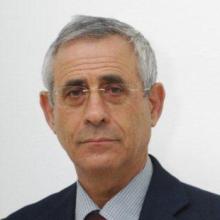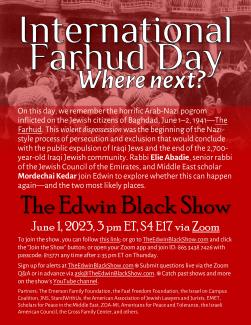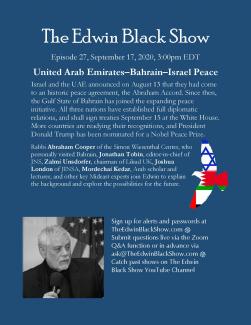On this day, we remember the horrific Arab-Nazi pogrom inflicted on the Jewish citizens of Baghdad on June 1–2, 1941—The Farhud.
This violent dispossession was the beginning of the Nazi-style process of persecution and exclusion that would conclude with the expulsion of Iraqi Jews and the end of the 2,700-year-old Iraqi Jewish community. Rabbi Elie Abadie, senior rabbi of the Jewish Council of the Emirates, and Middle East scholar Mordechai Kedar join Edwin to explore whether this can happen again—and the two most likely places.
[Ed. note: We asked the question: Where next? Our prediction of “Israel” proved to be tragically accurate when, on October 7, 2023, at the end of Sukkot, Hamas massacred some 1,400 individuals in Israel.]
The annual commemoration, observed worldwide, was inaugurated by author Edwin Black and proclaimed on June 1, 2015, at United Nations Headquarters in a globally live-streamed event.






